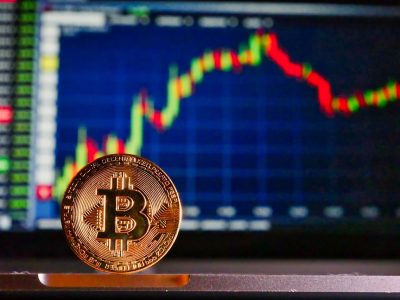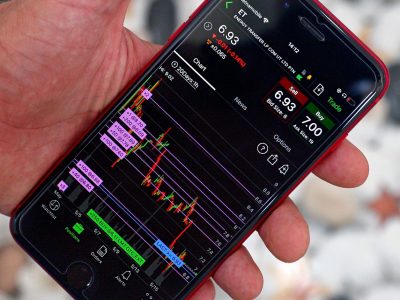
US stock markets saw mixed results on Tuesday as investors braced for crucial inflation data and a high-profile presidential debate between Vice President Kamala Harris and former President Donald Trump.
With markets sensitive to any sign of future Federal Reserve policy changes, traders closely monitored these key events, which could impact everything from interest rates to fiscal policies.
Tech giants Oracle and Alphabet led the day’s gains, while Apple and major banks, including Goldman Sachs and JPMorgan Chase, saw declines.
At the same time, oil prices dipped, and Treasury yields showed minor fluctuations as the markets awaited more clarity on the economic and political fronts.
Markets in limbo as key events loom
By mid-morning, the Dow Jones Industrial Average remained flat, dipping less than 0.1%, while the S&P 500 inched up 0.3% and the tech-heavy Nasdaq Composite climbed 0.2%.
At market open, the Dow added 86.9 points (0.21%) to reach 40,916.5. The S&P 500 gained 19.5 points (0.36%), hitting 5,490.51, while the Nasdaq rose 65.0 points (0.39%) to 16,949.641.
Investors are watching closely as the debate between Kamala Harris and Donald Trump approaches, anticipating potential insights into future economic policies.
The debate comes just ahead of the release of critical inflation data, which could sway the Federal Reserve’s next policy moves, particularly about interest rates and inflation control.
Tech stock gains and bank stock losses dominate
Oracle shares surged 12.1% after the company reported better-than-expected second-quarter earnings, driven by strong cloud services growth.
Alphabet, Google’s parent company, saw a 1% rise, reflecting positive investor sentiment amid steady advertising revenue.
However, Apple’s stock dropped 1.7% after the European Union rejected the tech giant’s appeal against a €13 billion (£11.2 billion) tax repayment to Ireland.
The ruling represents a significant setback for Apple, which is facing increasing regulatory scrutiny across multiple regions.
The banking sector also suffered losses, with Goldman Sachs, Citigroup, and JPMorgan Chase all falling by at least 3.5%.
These declines followed the US regulator’s announcement of changes to bank capital rules, which softened the expected impact on major banks but excluded smaller institutions from significant portions of the new regulations.
Investors remain cautious, awaiting further details on how these adjustments will affect the financial sector.
Oil prices fall, treasury yields dip
The energy sector faced headwinds as Brent crude oil dropped below $70 per barrel, reflecting ongoing concerns about global economic growth and potential weaker demand for energy.
With inflation data looming, the oil market’s future remains uncertain, especially as the data could affect energy consumption forecasts.
Treasury yields saw slight changes, with the 10-year Treasury note yield dipping to 3.69% from 3.70% the previous day. Investors are particularly focused on the outcome of a $58 billion auction of three-year notes.
Weak demand for these notes could lead to hawkish shifts in the bond market, while strong demand might reignite recession fears.
Despite overall market uncertainty, the tech-heavy Nasdaq 100 rose 0.3%, with an index tracking the “Magnificent Seven” mega-cap stocks, including Apple, Microsoft, and Alphabet, surging 1.1%.
This shows that investor interest in high-growth tech stocks remains strong even in a mixed economic environment.
Recession fears continue but optimism remains
Though concerns over a potential recession persist, Goldman Sachs strategists suggest the risk of a sharp market downturn remains low.
They cite a “healthy private sector” and potential Federal Reserve interest rate cuts as key factors that could help avoid a severe bear market.
However, the team also highlighted several risks, including higher stock valuations, a mixed economic outlook, and ongoing policy uncertainty, which could limit market gains in the coming months.
Investors are navigating a delicate balance between these competing forces as they evaluate their portfolios.
Apple and Google regulatory setbacks
In addition to its tax challenge loss, Apple faced another blow as Google lost its appeal against a €2.4 billion (£2 billion) EU fine for abusing its market dominance.
These setbacks underscore the growing regulatory risks facing Big Tech companies, particularly in Europe.
Meanwhile, BMW warned that a recall of 1.5 million vehicles due to braking system issues could significantly hurt its profits, adding to the pressures on Europe’s already struggling economy.
As traders keep an eye on inflation data and the Trump-Harris debate, the market outlook remains cautiously optimistic.
Major companies, particularly in the tech sector, are contending with regulatory hurdles, and economic uncertainty persists. Investors are staying vigilant, and prepared for potential shocks as the next phase of market volatility unfolds.
The post US markets mixed as Oracle, Alphabet gain, Apple and banks slide ahead of inflation data and Trump-Harris debate appeared first on Invezz









